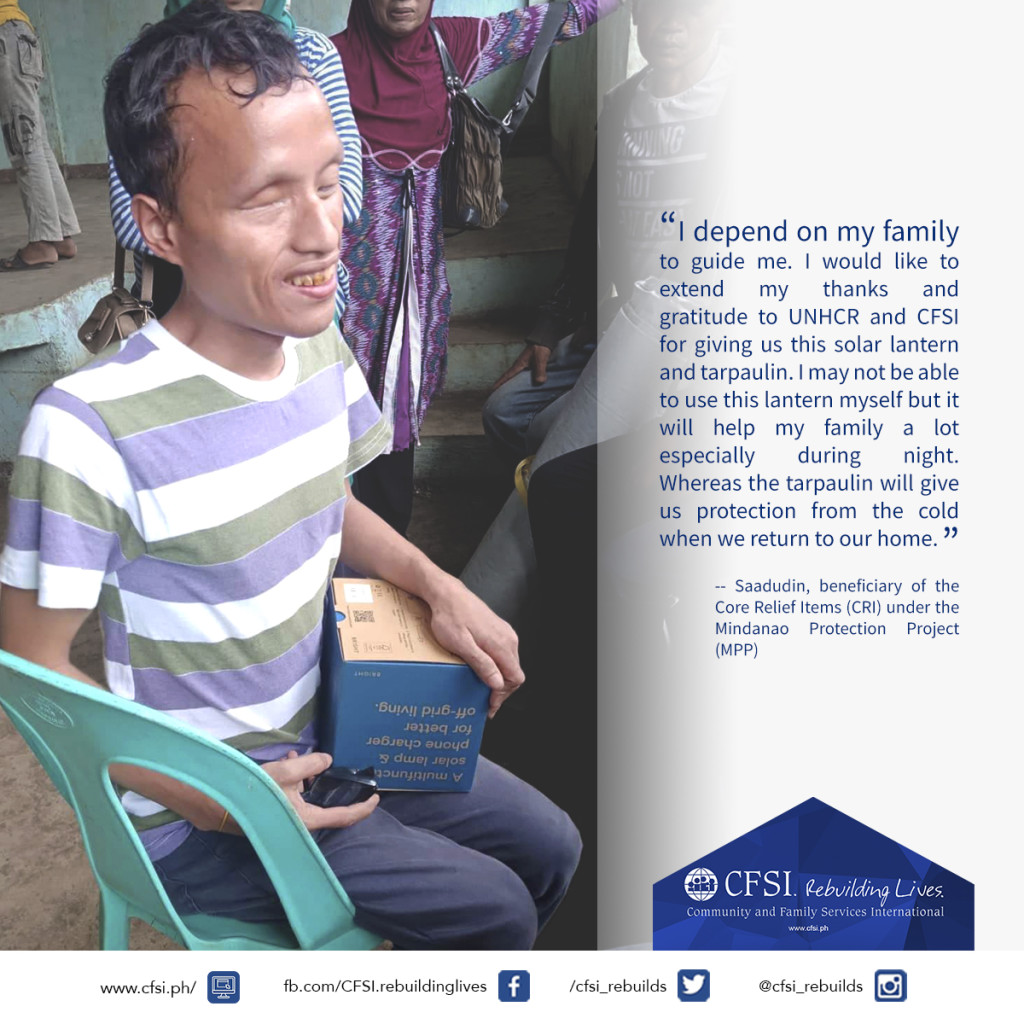Hearing gunshots in their surrounding area is not something new to Saadudin and his family. Since the encounter between government armed forces and IS-Maute rebels in June 2018, Saadudin and his family have been constantly on the move to escape getting caught in between gun fires. The first sign of gunshots serves as the indication for the family to pick up their bags and flee once again.
This was not as simple for Saadudin, however, who suffers from visual impairment. On the evening of 14 March when the family heard again another round of gunshots from their refuge at the time, Saadudin had to be carried on the back of a horse and he and his family had to travel for almost an hour in the dark using only a battery-powered flashlight.
“Every time we escape from a shootout, I feel the burden my family carries because I can’t run or hide by myself,” Saadudin shares.
Saadudin’s family is just one among the thousands of families who are still affected by the massive displacement of communities because of continuing armed conflict in Mindanao. To help address their immediate protection needs, Saadudin was identified as a beneficiary of the Core Relief Items (CRI), through the Mindanao Protection Project (MPP), a project led by CFSI in partnership with the UNHCR.
“I depend on my family to guide me,” he continues, “I would like to extend my thanks and gratitude to UNHCR and CFSI for giving us this solar lantern and tarpaulin. I may not be able to use this lantern myself but it will help my family a lot especially during night. Whereas the tarpaulin will give us protection from the cold when we return to our home.”
The MPP aims to address the immediate protection needs of people affected by armed conflict and facilitates the rapid integration and rehabilitation of IDPs and returnees in Central and Northern Mindanao, and island provinces through the implementation of QIPs and protection monitoring trainings. The CRI aims to contribute to the protection of persons forcibly displaced due to armed conflict and other forms of violence, prioritizing women, children, and persons with special needs in order to prevent deterioration of their physical wellbeing and high exposure to protection risks and violation of their rights.


